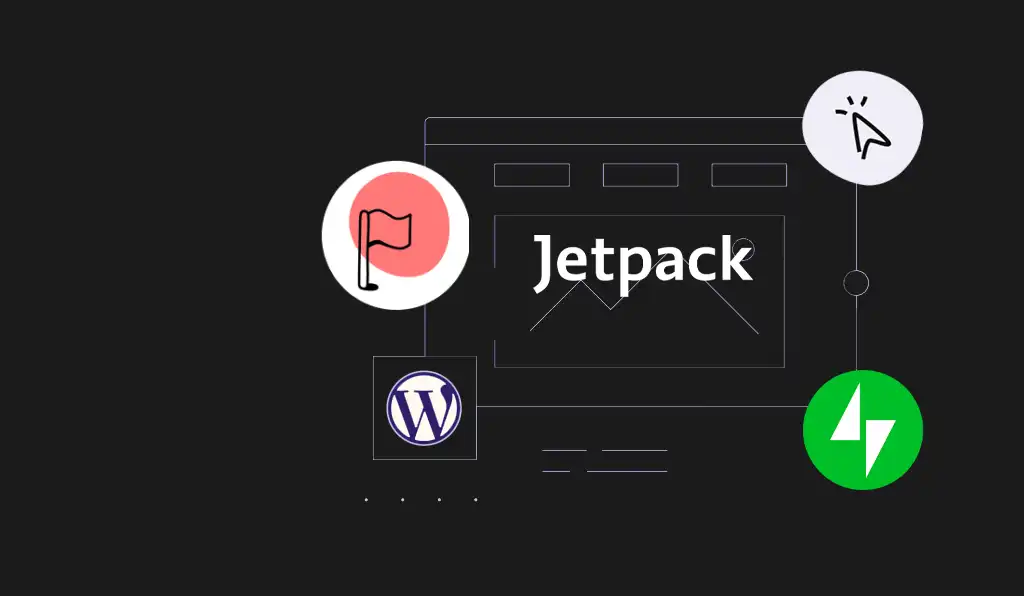What Is WordPress Jetpack?
Jetpack is a popular all-in-one plugin suite for WordPress developed by Automattic (the company behind WordPress.com) [source: wordpress.org/plugins/jetpack]. It combines multiple features—ranging from security and performance optimization to marketing and design—into one centralized package. With over 5 million active installations, Jetpack remains a go-to solution for site owners looking for convenience and robust feature sets [source: wordpress.org/plugins/jetpack].
Key Features of WordPress Jetpack
| Feature | Description |
|---|---|
| Security | Malware scanning, spam protection, brute-force attack prevention, and automatic backups. |
| Performance | Free CDN for images and static files, lazy loading of images, and site accelerator tools. |
| Site Stats | Detailed analytics, including daily traffic, popular posts/pages, and visitor insights. |
| Social Sharing | Social media integration, auto-posting to social networks, and easy sharing buttons. |
| Marketing Tools | SEO tools (on paid plans), email subscription forms, and related posts display. |
| Design & Customization | Customizable themes, galleries, carousels, and extra widgets (e.g., contact forms, subscriptions). |
| Automatic Updates | Automatic plugin updates and version management for WordPress core, themes, and plugins. |
Should You Install Jetpack?
Whether Jetpack is right for your site depends on your needs. If you prefer a single plugin to handle multiple functionalities—like security, performance, and marketing—Jetpack can be highly convenient. It reduces the need to install (and maintain) many separate plugins, potentially saving time and reducing compatibility issues [source: kinsta.com/blog/jetpack-wordpress-plugin-review]. However, if you only require one or two of Jetpack’s features, you may find lightweight, specialized plugins more efficient.
Does Jetpack Slow Down Site Speed?
Jetpack can impact site performance if you enable many of its modules simultaneously [source: wpbeginner.com/opinion/why-we-switched-away-from-jetpack]. Each active feature can introduce extra scripts or queries. That said, Jetpack’s CDN and image optimization tools can actually improve site speed, especially for image-heavy websites. The key is to selectively enable only the modules you need.
Tips to Optimize Performance
- Enable Necessary Modules Only: Disable any Jetpack modules you don’t use.
- Use the Jetpack CDN: Offload images and static files for faster delivery.
- Monitor Speed Regularly: Use tools like Google PageSpeed Insights or GTmetrix to see if Jetpack is affecting load times.
Pros and Cons of WordPress Jetpack
Pros
- All-in-One Convenience: Bundles multiple functionalities—security, performance, marketing—in a single plugin.
- Frequent Updates & Support: Backed by Automattic, with consistent improvements and security patches.
- CDN & Image Optimization: Helps improve page load times, especially for media-rich sites.
- Site Stats & Analytics: Offers built-in stats without needing third-party analytics (though Google Analytics can still be integrated).
Cons
- Potential Performance Overhead: Can slow down sites if too many modules are activated.
- Module Overload: Some users find Jetpack’s broad scope confusing or overwhelming.
- Premium Features: Advanced security scans, SEO tools, and backups often require a paid plan.
- Reliance on WordPress.com: Some functionalities require a WordPress.com account.
Resources & Statistics
- Official WordPress Plugin Repository: Over 5 million active installations and thousands of reviews.
- WPBeginner: Provides detailed guides on optimizing Jetpack and addresses potential performance issues.
- Kinsta Blog: Offers in-depth reviews and performance comparisons, highlighting both benefits and drawbacks.
According to user feedback on these platforms, Jetpack’s average rating sits around 4 out of 5 stars, indicating a generally positive reception but also reflecting some concerns about performance and feature bloat [source: wordpress.org/plugins/jetpack].
Conclusion
Jetpack is a comprehensive, widely trusted plugin that can simplify your WordPress management. Its security features, CDN, and design modules make it a strong option for site owners seeking a one-stop solution. To maintain optimal site speed, enable only the features you truly need and regularly monitor your website’s performance.



